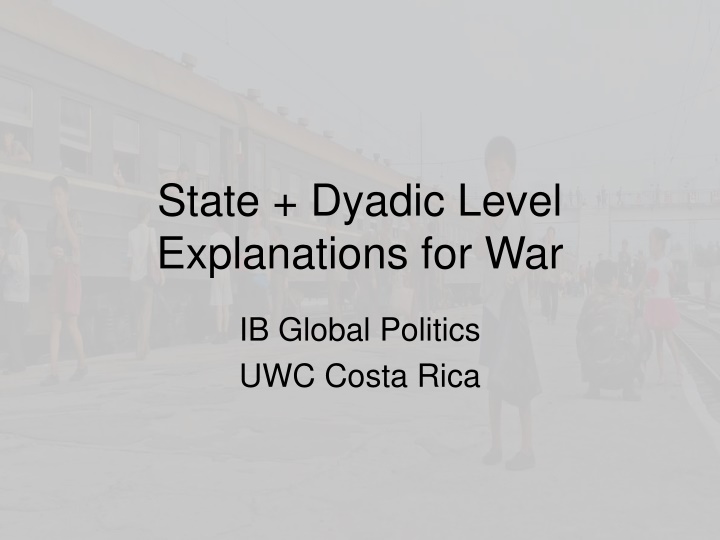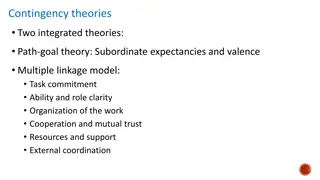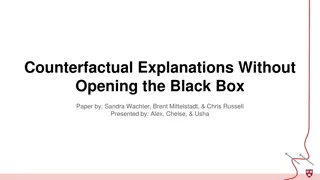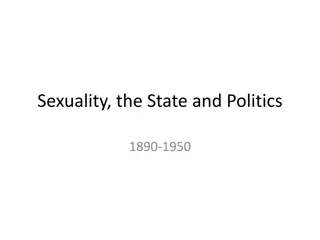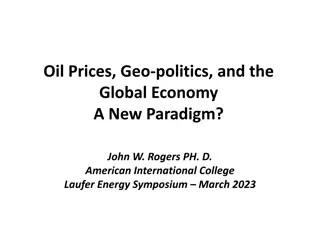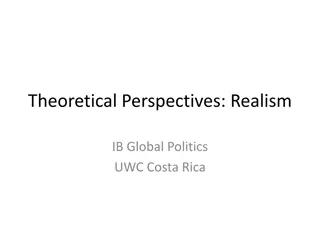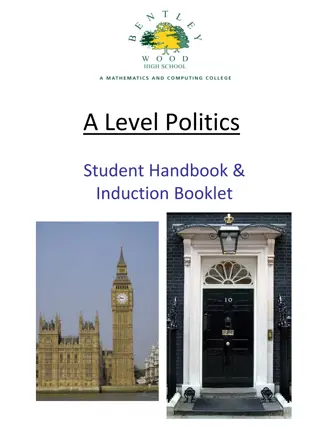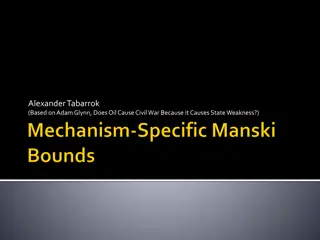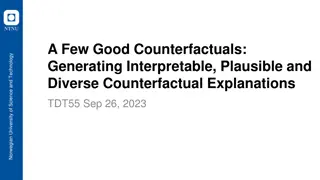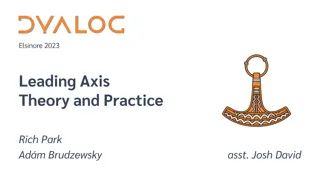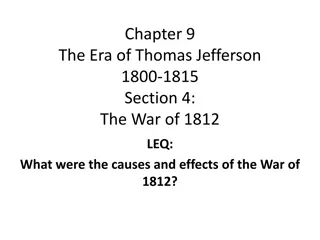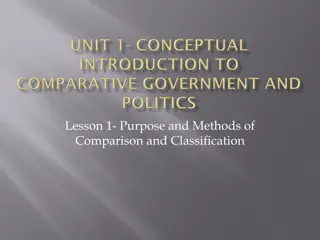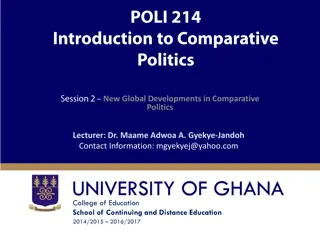Examining State-Level and Dyadic Explanations for War in Global Politics
Understanding the reasons why certain states are more war-prone than others involves exploring factors such as economy, internal opposition, and political systems. Marxist explanations argue that capitalist economies are more prone to war due to issues like overproduction, wealth inequality, and imperialism. Criticism of this view points out that not all capitalist states engage in imperialism, and war has historical roots predating capitalist systems.
Download Presentation

Please find below an Image/Link to download the presentation.
The content on the website is provided AS IS for your information and personal use only. It may not be sold, licensed, or shared on other websites without obtaining consent from the author.If you encounter any issues during the download, it is possible that the publisher has removed the file from their server.
You are allowed to download the files provided on this website for personal or commercial use, subject to the condition that they are used lawfully. All files are the property of their respective owners.
The content on the website is provided AS IS for your information and personal use only. It may not be sold, licensed, or shared on other websites without obtaining consent from the author.
E N D
Presentation Transcript
State + Dyadic Level Explanations for War IB Global Politics UWC Costa Rica
Whats the point? Some people are just accident prone Similarly, some state- level explanations argue that some types of states may be more war-prone than others Factors such as nature of economy, internal political opposition, nature of political system etc.
Dyadic Explanations Dyadic explanations refer to the interaction of the characteristics of two states War within democratic dyads is extremely rare
Three factors Economy Internal opposition Nature of political system
Type of Economy: A Marxist Explanation Argues capitalist states are more war-prone. Why? Capitalist economies experience overproduction, surplus capital, wealth inequality etc. Seek to address these through imperialism new markets, cheap labour, access to raw materials
Marxist explanation Imperialism, by its nature, involves military conflict In a world of many capitalist countries imperialism means economic competition between rival states. Each state strives to gain exclusive control over markets, raw materials, sources of cheap labor, naval bases, and investment opportunities. At some point, these can be gained only at the expense of other capitalist states. Economic conflict eventually leads to military conflict
Criticism of the Marxist view One group of arguments focuses on the Marxist assumptions for why capitalist states must engage in imperialism, pointing out, for example, that not all capitalist states were experiencing economic problems at home when they engaged in imperialism and that they often did not secure the benefits of imperialism. Another group of criticisms focuses on the historical record, pointing out that not all capitalist states have engaged in imperialism, that not all conflicts between capitalist states ended in war, that war has been around longer than capitalist economic systems, that wars between capitalist states were not necessarily fought for economic reasons, and that states with socialist or centrally planned economies have often been engaged in conflict, even with each other
Butdoes not rule out possibility that economic coditions/force provide explanation for war Conquering others resources in order to address economic problems may be a major motivation for some states to initiate wars. Evidence that good economic conditions may be related to war because that is when states can afford military adventures.
War may benefit certain economic interest groups in a society Weapons manufacturers make increased profits from war Concept of military industrial complex focuses on the relationship among the military, the bureaucracy, and the defense industry as a coalition of economic and political interests that benefit from international conflict
Types of Political Systems In addition to the systemic- level characteristic of interdependence, liberal explanations of international conflict include the type of political system that states have. Specifically, liberalism expects states with democratic systems to be less war prone than nondemocratic states because of the constraints that are built in to democratic structures and the cultural values of peaceful resolution of conflicts that are related to democratic processes
Internal Opposition Supposedly, democracies are constrained from choosing war because of an opposition that views war as counter to cultural norms Leaders of democratic states are accountable through the ballot box
Democratic Dyads Democratic states are just as likely as non- democratic states to go to war Evidence suggests that democratic states are much less likely to become involved in war against each other Known as the democratic peace proposition democratic states will not go to war against each other Democratic dyads are conflict free
Global Democracy Index Map https://www.reddit.com/r/MapPorn/comments/49z 4s2/democracy_index_map_for_2014_2754x139 7/?st=ixrxj5ya&sh=5041bc2c
A disclaimer The validity of this proposition is heavily dependent on the definitions of democracy and war used It is easy to discredit the idea by adopting very broad definitions Equally easy to make the proposition invulnerable to contrary evidence, (and empirically meaningless) by adopting a definition of democracy that is so strict as to eliminate virtually every state that has ever existed
But if democracy is defined as a type of political system in which the identities of the leaders of the executive branch and the members of the national legislature are selected in elections involving at least two independent political parties, in which at least half the adult population is eligible to vote, and in which the possibility that the governing party will lose has been established by historical precedent, then . . . none of those [controversial] cases is appropriately categorized as an international war between democratic states
